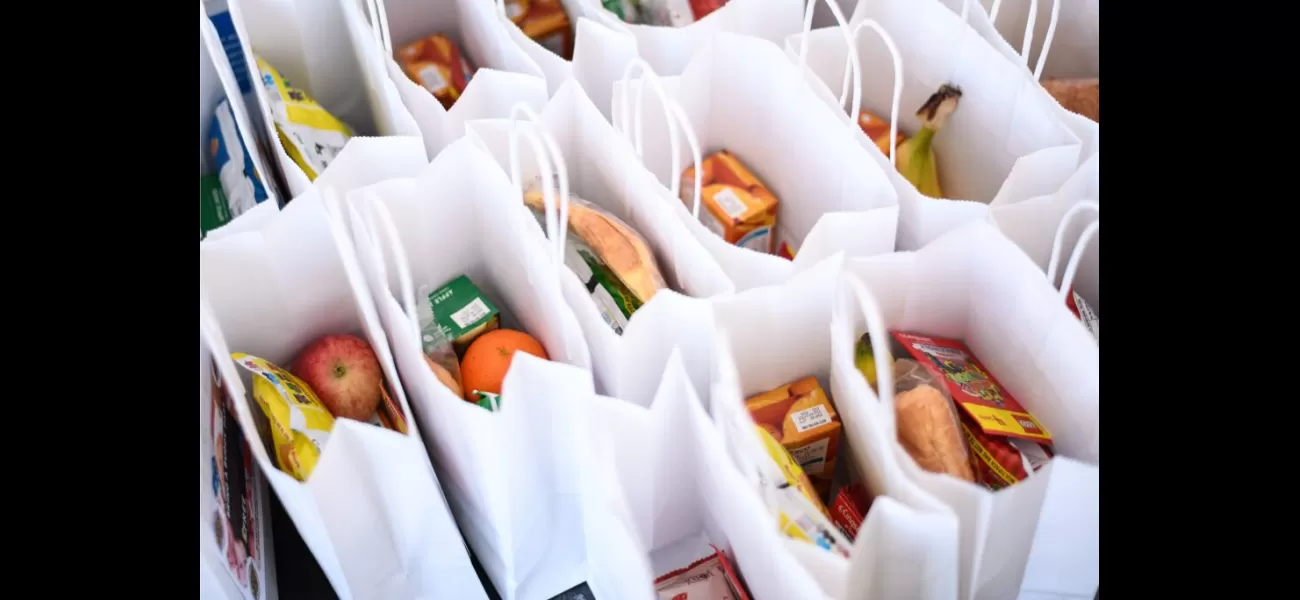Mississippi chooses not to participate in free summer food program despite having the highest rates of food insufficiency in the country.
It's a great injustice to the kids in Mississippi.
January 15th 2024.

Mississippi, along with 13 other states including Alabama, Alaska, Florida, Georgia, Iowa, Louisiana, Nebraska, Oklahoma, South Carolina, South Dakota, Texas, Vermont, and Wyoming, has decided not to take part in a new summer free food program for children in need. This program, known as the Summer Electronic Benefits Transfer (EBT) program, was recently made permanent by the U.S. Department of Agriculture. It aims to supplement existing summer programs that have limited capacity, ensuring that all children have access to food.
While all five U.S. territories, four tribes, and 35 states have chosen to participate in this federal program, Mississippi has decided to opt out. Agriculture Secretary Tom Vilsack stated that "no child in this country should go hungry" and that they certainly should not lose access to nutritious school meals during the summer months. This program is expected to benefit nearly 21 million children starting in the summer of 2024.
However, Mississippi and the other 13 states have chosen not to participate. Some of these states, such as Nebraska, Iowa, and Oklahoma, have cited existing programs to feed hungry children as their reason for not joining. Nevertheless, if they change their minds, they can still opt in during the summer of 2025. On the other hand, the Cherokee Nation tribe has decided to participate and has stated that it was an easy decision.
The National Principal Chief Chuck Hoskin Jr. explained that many households are facing financial pressures, such as rent and other housing costs, which make it difficult to afford enough food. He believes that this program will help alleviate some of these challenges by empowering parents to purchase more food and healthy options for their children. Interestingly, the Cherokee Nation tribe is based in Oklahoma, which is one of the states that has opted out of the program. Hoskin anticipates that they will receive more applications from non-tribal citizens living on the reservation.
According to U.S. News & World Report, in 2023 Mississippi was one of the states with the highest food insufficiency rates. It ranked at 22.6% in the American South. From 2019 to 2021, the average food insecurity rate in the state was 15.3%, making it the hungriest state with a food insecurity rate of 32% above the national average of 10.4%.
Families who are eligible for free or reduced-price lunches are those whose income is at or below 185% of the federal poverty line. These families will receive $40 per month per child during the summer months, which adds up to $120 per child. All funds will be loaded onto an EBT card that can be used at stores participating in the Supplemental Nutrition Assistance Program benefits.
While all five U.S. territories, four tribes, and 35 states have chosen to participate in this federal program, Mississippi has decided to opt out. Agriculture Secretary Tom Vilsack stated that "no child in this country should go hungry" and that they certainly should not lose access to nutritious school meals during the summer months. This program is expected to benefit nearly 21 million children starting in the summer of 2024.
However, Mississippi and the other 13 states have chosen not to participate. Some of these states, such as Nebraska, Iowa, and Oklahoma, have cited existing programs to feed hungry children as their reason for not joining. Nevertheless, if they change their minds, they can still opt in during the summer of 2025. On the other hand, the Cherokee Nation tribe has decided to participate and has stated that it was an easy decision.
The National Principal Chief Chuck Hoskin Jr. explained that many households are facing financial pressures, such as rent and other housing costs, which make it difficult to afford enough food. He believes that this program will help alleviate some of these challenges by empowering parents to purchase more food and healthy options for their children. Interestingly, the Cherokee Nation tribe is based in Oklahoma, which is one of the states that has opted out of the program. Hoskin anticipates that they will receive more applications from non-tribal citizens living on the reservation.
According to U.S. News & World Report, in 2023 Mississippi was one of the states with the highest food insufficiency rates. It ranked at 22.6% in the American South. From 2019 to 2021, the average food insecurity rate in the state was 15.3%, making it the hungriest state with a food insecurity rate of 32% above the national average of 10.4%.
Families who are eligible for free or reduced-price lunches are those whose income is at or below 185% of the federal poverty line. These families will receive $40 per month per child during the summer months, which adds up to $120 per child. All funds will be loaded onto an EBT card that can be used at stores participating in the Supplemental Nutrition Assistance Program benefits.
[This article has been trending online recently and has been generated with AI. Your feed is customized.]
[Generative AI is experimental.]
0
0
Submit Comment





